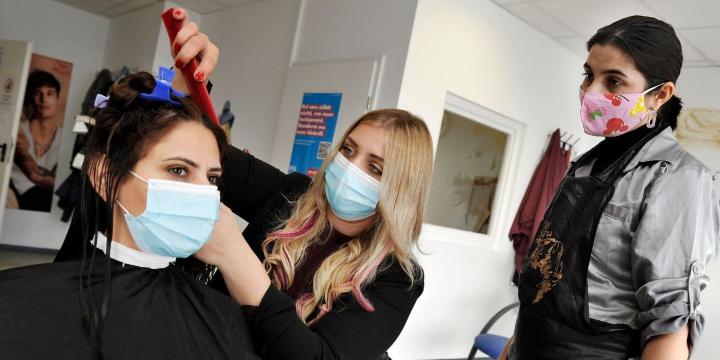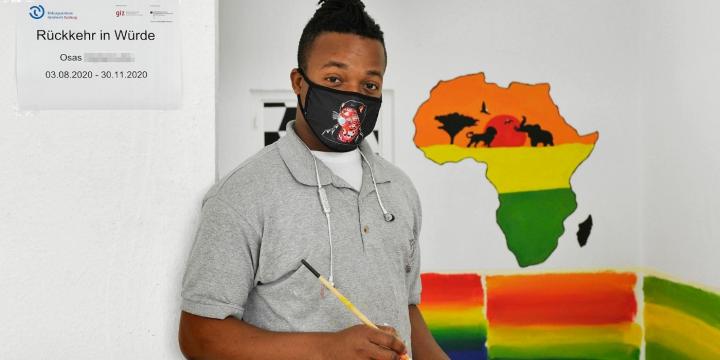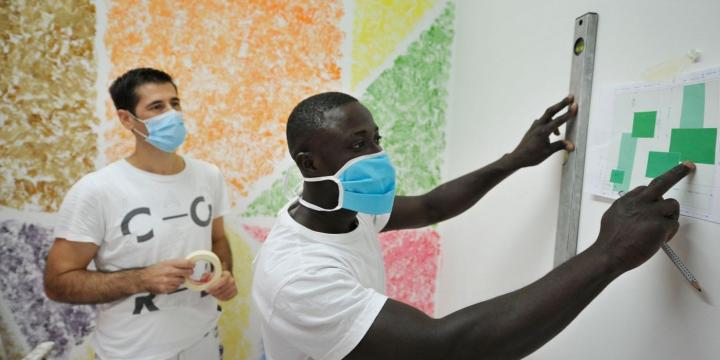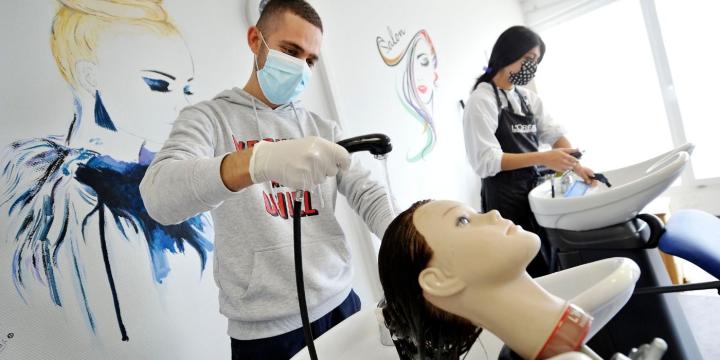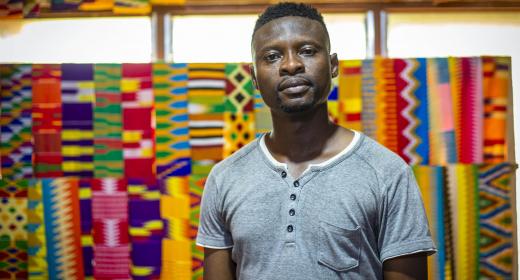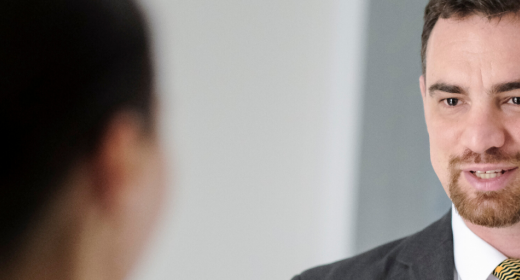"I always wanted to be a hairdresser," says Sivan. He even worked in a barber's shop when he was in Iraq. Now he's leaning over a plastic head with female features and long hair. The hair is still blonde, but Sivan is dyeing it darker strand by strand. He has been in Germany for 11 months now, where he's learning a very different side to the art of hairdressing. Having his own salon in Iraq – for both men and women – is his dream.
Karina is 33 years old, and also intends to open her own salon. She is currently styling the hair of another woman taking part in the course, and is getting tips from Hannah Fudala about how to create a neat shape by graduating the hair as she cuts it. Fudala is a master hairdresser, and leads the training offered by the Duisburg District Craft Trades Association. The hairdressing salon, in which eight young people are applying dye and handling scissors and hairdryers, is located on the first floor of a training facility in Dinslaken. One floor below, there are women from Nigeria pottering about in the kitchen along with young men from Kosovo.

